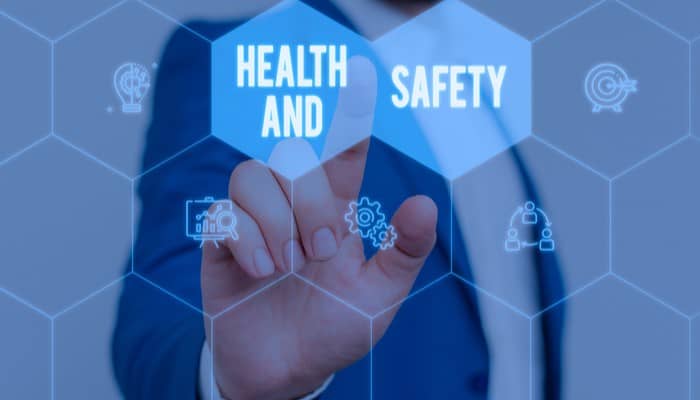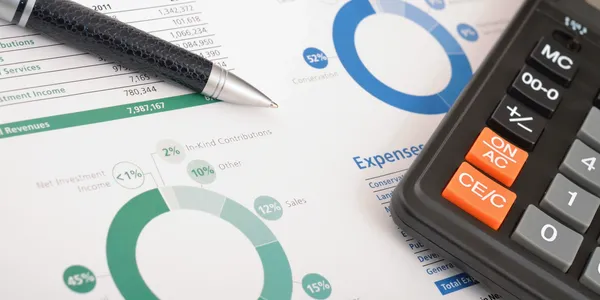Top Up Courses

Health & Social Care
Strategic Management & Leadership


Business Management
Business management is the coordination and organization of
business activities overseeing operations and helping employees reach their top productivity levels to assist a business reach its operational and financial objectives.
Tourism & Hospitality
Tourism and Hospitality management refers to management
studies pertaining to management in the hospitality industry, of which tourism is a part. It consists of restaurants, clubs, resorts, cruise lines, and other customer-oriented businesses.


Entrepreneurship
Entrepreneurship is the ability and readiness to develop, organize and run a business enterprise, along with any of its uncertainties in order to make a profit. The most prominent example of entrepreneurship is the starting of new businesses.
Health & Safety Management
A truly effective health & safety management system establishes and maintains a culture of safety that permeates the entire organization. The attitude and behaviors of management and workers must exhibit a strong commitment to a safer work environment


Accounting & Finance
Accounting is the art of keeping a record of business, events and transactions in a systematic manner. Finance is a part of economics that is concerned with resource allocation and management of funds. While accounting is a sub-domain of finance.
Information Technology
Information technology (IT) is the use of any computers, storage, networking and other physical devices, infrastructure and processes to create, process, store, secure and exchange all forms of electronic data.


Cyber-Security
Cyber security is the practice of defending computers, servers, mobile devices, electronic systems, networks, and data from malicious attacks. The main role is to protect critical systems and sensitive information from digital attacks
Logistics & Supply Chain Management
The main function of logistics in supply chain management is primarily to increase the overall value of each delivery, which is identified by customer satisfaction. This means that the reduction and optimization of labor resources must be tied to keeping up a certain level of quality customer service.


Health & Social Care
Health and Social care programmes offer a wide range of roles in the field of the healthcare industry. These programmes can help the aspirants to gain knowledge and deliver the right skills and qualities. The programme is intended to grant career paths for the aspirants to enhance their skills in management and care within the health and social care sector. Dedicated work-related programmes of study ensure that students gain in-depth knowledge and awareness, as well as practical skills necessary for health and social care to function effectively. In addition, it offers optional units for specialist development and growth. The qualification is designed to guide future health care professionals and managers.

Business Administration
This qualification is designed to provide a foundation in the business administration sector. Through these programs, learners can gain relevant skills and qualities that will help them in the workplace. A key principle of the course is to provide learners with a career path in the business sector for building their care capacities. Upon completion of the Diploma, which is a UK-accredited qualification, aspirants will be able to possess the skills required by organisations around the world. Our programs are designed to offer learning based on concepts and practical insights that will be useful to companies in both the present and the future. Furthermore, we aim to develop efficient team leaders, managers, and leaders through the invention and delivery of industry-specific learning.
View Courses

Business Management
Business management qualifications were designed to provide the foundation for further study. Additionally, they promote recognition and professionalism in the management sector. Our programs enable students to develop skills and qualities relevant to their future careers. This course will benefit learners who wish to develop their care capacities within the business sector. In return, aspirants receive an internationally recognized UK diploma that enables them to develop skills needed by organisations around the world. Our programs are designed to provide the concepts and insights necessary for the companies of the future and the present. Additionally, we aim to build up effective team leaders, managers, and leaders through the invention and delivery of industry-specific learning. Students gain a deep understanding of the industry by identifying and evaluating modern threats.

Tourism & Hospitality
The Tourism and Hospitality Management programme is designed for learners who wish to further their careers in tourism and hospitality management through additional knowledge and skills, as well as those wishing to change career paths by entering the tourism and hospitality industry. The purpose of this course is to provide learners with an in-depth learning experience and orientation that will enable them to gain the skills and competencies required for managerial roles in the tourism and hospitality industry. Upon completion of this course, students will gain extensive theoretical and practical knowledge and be able to handle the complex organisational issues encountered in management positions within the hospitality and tourism industry. This course is designed to assist learners in building a management career in the tourism and hospitality industry by providing them with technical knowledge and practical skills.

Health & Safety Management
It is an organized system for ensuring the health and safety of workers at the workplace. Our market-leading health and safety course for line managers has been tried, tested, and trusted for years. Unlike any other course, this one provides managers with the confidence and enthusiasm to apply knowledge at work. You will increase productivity, enhance your reputation within your supply chain, and improve the safety awareness culture in your organization by embedding safety and health across the entire organization through this course. In this programme, students learn how to set up a complete protection system. Additionally, this course facilitates a system whose complexity will be determined by how big the organization is, what the business is, and how it is organized.

Information Technology
A course in Information Technology focuses on practical, work-related skills. The courses provide candidates with the opportunity to complete projects and assignments that are based on real-world workplace situations, activities, and demands. A wide range of organizations will need IT experts that can fill interesting, demanding, high-paying specialist posts in the future, as information technology (IT) is changing at an extremely rapid pace today. Upon completion of this qualification, learners will be able to enter a career as an IT practitioner or technician in the areas of business systems, user support, networking, and software development, as well as progress to higher education vocational qualifications. The qualification will provide learners with skills they will require to start or advance in a career in information technology.

Accounting & Finance
Accounting is an integral part of international business today. Those with a passion for numbers and strong organizational and analytical skills would benefit from this program. This program aims to provide learners with the knowledge and skills necessary for pursuing a managerial level role in accounting and finance in modern business. Moreover, this course facilitates the learning of a variety of financial and accounting management issues and practical aspects. A course in Accounting and Finance would assist learners in understanding the most recent trends in the field, as well as the impact of changing standards and regulations. In addition to providing in-depth knowledge and practical skills, the Accounting and Finance program prepares learners to take on senior management positions in the accounting and finance fields. This qualification could be beneficial to those interested in banking, finance management, accountancy, and so on. Further, this qualification would qualify individuals to work in accounting or finance positions in both foreign and domestic organizations.
Category
Levels
Category
Levels
BUSINESS AND MANAGEMENT
Level 3 Diploma in Business Management
Course Overview: The Level 3 Diploma in Business Management programme seeks to offer students a professional route for those who aspire to advance their fundamental skills in the business world.
Progression Pathway: Learners may continue on to a Level 4 certification or the first year of undergraduate education in a related field after earning this Level 3 diploma. Additionally, students might start working right away in a related profession.
Entry Requirements: Learners will be expected to have achieved Level 2 certifications. Instructors may demand that students acquire job experience in a business environment and exhibit ambition by outlining career goals. Some students who desire to advance their management careers may already hold a level 3 qualification in another field.
BUSINESS AND MANAGEMENT
Level 4 Diploma in Entrepreneurship
Course Overview: The Level 4 Diploma in Entrepreneurship programme was developed to educate, recognise, and reward the business managers of today and tomorrow as well as to advance the credibility and professionalism of the management fields.
Progression Pathway: After earning this Level 4 credential, students may continue their education by pursuing either the Level 5 Diploma in Business Management or Business Enterprise or the second year of business management undergraduate study. Additionally, students can enter a related profession and start working right away.
Entry Requirements: Learners will be expected to hold Level 3 credentials, such as "A" Levels or vocational awards. Learners may also be needed to have worked in an organisation for a period of time, demonstrating their aptitude and desire to advance.
BUSINESS AND MANAGEMENT
Level 4 Diploma In Business Management
Course Overview: The Level 4 Diploma in Business Management programme was developed to foster the growth of present and future business managers and to maintain the professionalism and recognition of the management fields.
Progression Pathway: Learners may continue on to a Level 5 certification or the second year of undergraduate business or equivalent course after earning this Level 4 diploma. Additionally, learners have the option of entering a related profession right away.
Entry Requirements: Learners will be expected to hold Level 3 credentials, such as "A" Levels or vocational awards. Instructors may demand that students have worked in an organisation for a while and demonstrated their ability and desire to advance.
BUSINESS AND MANAGEMENT
Level 5 Diploma in Business Enterprise
Course Overview: The Level 5 Diploma in Business Enterprise curriculum offers thorough study of the issues, difficulties, and disciplines that growth organisations or business start-ups encounter. It will be expected of learners to approach firms with initiative and ambition.
Progression Pathway: Learners can continue on to the last year of an undergraduate degree after earning this Level 5 diploma. Additionally, learners have the option of entering a related profession right away
Entry Requirements: Learners will be required to hold Level 3 and/or Level 4 credentials. Additionally, some students may choose to start their own business or change occupations after receiving their first degree in a different field.
BUSINESS AND MANAGEMENT
Level 5 Diploma in Business Management
Course Overview: The Level 5 Diploma in Business Management curriculum will evaluate and develop learners' job experience and talents because the units are directly related to modern real world and workplace difficulties.
Progression Pathway: After earning this Level 5 diploma, students can continue on to their undergraduate degree's final year. Additionally, learners have the option of entering a related profession right away.
Entry Requirements: Learners will be required to hold Level 3 and/or Level 4 diplomas. Additionally, some students may choose to start their own business or change occupations after receiving their first degree in a different field.
BUSINESS AND MANAGEMENT
Level 6 Diploma in Business Administration
Course Overview: The Level 6 Diploma in Business Administration programme was developed to train and honour the business leaders of the present and the future and to maintain the advancement of professionalism in a variety of industries.
Progression Pathway: Learners can go on to the first year of postgraduate study or a Level 7 Diploma after earning this Level 6 diploma. Additionally, learners have the option of entering a related profession right away.
Entry Requirements: Learners will be required to hold Level 5 credentials. Alternatively, students can show they are motivated and have the desire to establish their own business or line of work by having work experience. Learners who have a lot of experience but no formal education may be taken into consideration in some conditions.
BUSINESS AND MANAGEMENT
Level 7 Diploma in Executive Management
Course Overview: In order to continue advancing professionalism in the management fields and to develop and reward the business managers of today and tomorrow, the Level 7 Diploma in Executive Management degree was developed.
Progression Pathway: Learners can enrol in a university partner after earning this Level 7 credential and do a dissertation to get a full master's degree. In addition, students have the option of moving on to the Level 8 Diploma in Strategic Management and Leadership or entering the workforce immediately in a related field.
Entry Requirements: The minimum qualification for learners will be a first-degree or a Level 6 qualification. Managers with a lot of experience but no formal education may be taken into consideration in some situations.
BUSINESS AND MANAGEMENT
Level 7 Diploma in Strategic Management and Leadership
Course Overview: The Level 7 Diploma in Strategic Management & Leadership qualification was developed to foster the growth of present and future business managers and to maintain the professionalism and recognition of the management fields.
Progression Pathway: Learners can enrol in a university partner after earning this Level 7 credential and do a dissertation to get a full master's degree. In addition, students have the option of continuing on to the Level 8 Diploma in Strategic Management and Leadership or entering the workforce immediately in a related field.
Entry Requirements: The minimum qualification for learners will be a first-degree or a Level 6 qualification. Managers with a lot of experience but no formal education may be taken into consideration in some situations.
BUSINESS AND MANAGEMENT
Level 8 Diploma in Strategic Management and Leadership
Course Overview: With the help of this Level 8 Diploma in Strategic Management and Leadership, ambitious, expanding organisations can create and put into action effective strategies.
Progression Pathway: Learners can move on to a university partner to develop a research proposal for a DBA/MPhil/PhD after finishing this Level 8 Diploma. Additionally, learners have the option of entering a related profession right away.
Entry Requirements: A master's degree or a Level 7 postgraduate qualification will be required of learners. In some cases, managers with significant experience but no formal training may be taken into consideration after going through an interview procedure.
HEALTH AND SOCIAL CARE
Level 2 Diploma in Care
Course Overview: The Level 2 Diploma in Care is intended to certify the professional competency of Adult Care Workers or Healthcare Support Workers in their respective fields.
Progression Pathway: The Level 3 Certificate in Health and Social Care OR the Level 3 Lead Adult Care Worker Apprenticeship are options for learners once they complete this Level 2 diploma.
Entry Requirements: A centre interview is required for admission to the qualification.
HEALTH AND SOCIAL CARE
Level 3 Diploma in Health and Social Care
Course Overview: The Level 3 Diploma in Health and Social Care learners can choose specialisations in the optional units in addition to the generic core of required units that are applicable to all health and social care environments.
Progression Pathway: After earning this Level 3 diploma, students can continue their education by earning a Level 4 Diploma in Health and Social Care or by enrolling in the first year of a health and social care undergraduate programme. Additionally, students can enter a related profession and start working right away.
Entry Requirements: In addition to demonstrating ambition with specific career goals, learners will be needed to hold a Level 2 certification and/or work experience in the health and social care industry. Alternatively, a Level 3 certificate in a different field.
HEALTH AND SOCIAL CARE
Level 4 Diploma in Health and Social Care
Course Overview: A career path for students who want to advance their management and care skills in the health and social care industry is intended to be provided by the Level 4 Diploma in Health and Social Care programme.
Progression Pathway: The Level 5 Diploma in Health and Social Care or the second year of undergraduate study in health and social care are options for learners once they complete this Level 4 diploma. Additionally, learners have the option of entering a related profession right away.
Entry Requirements: It will be required of learners to hold Level 3 credentials, such as "A" Levels or vocational awards. The ability and desire to grow may be expected of learners, who may be required to have experience working in an organisation.
HEALTH AND SOCIAL CARE
Level 5 Diploma in Health and Social Care
Course Overview: The Level 5 Diploma in Health and Social Care programme seeks to give people the chance to pursue a career in health and social care by helping them gain a deeper understanding of the sector and to support their advancement into senior roles.
Progression Pathway: This Level 5 diploma allows students to continue on to the last year of an undergraduate degree. Additionally, learners have the option of entering a related profession right away.
Entry Requirements: Learners will be required to hold Level 3 and/or Level 4 credentials. It may be expected of learners to show ambition and have specific career goals, as well as to have managerial-level work experience. Additionally, some learners may already hold a first degree in a different field and wish to advance their careers in business or health and social care.
HOSPITALITY AND TOURISM MANAGEMENT
Level 3 Diploma in Hospitality and Tourism Management
Course Overview: The Level 3 Diploma in Hospitality and Tourism Management programme foster learning that improves organisational thought leadership and management by providing theoretical and practical insights that can be used in both present-day and future-day businesses.
Progression Pathway: Learners can continue on to the Level 4 Certificate in Hospitality and Tourism Management after finishing this Level 3 diploma. Additionally, learners have the option of entering a related profession right away.
Entry Requirements: The only prerequisite for this open-entry certification is that applicants have an IELTS score of 5.5 or equivalent documentation proving their level of English proficiency.
HOSPITALITY AND TOURISM MANAGEMENT
Level 4 Diploma in Hospitality and Tourism Management
Course Overview: The programme for a Level 4 Diploma in Hospitality and Tourism Management introduces students to the key functions and processes of organisations.
Progression Pathway: Learners may continue their education by enrolling in the second year of an undergraduate programme or a Level 5 Diploma in Hospitality and Tourism Management, Business Management, or Business Enterprise. Additionally, learners have the option of entering a related profession right away.
Entry Requirements: Learners will be required to exhibit some aptitude and hold Level 3 qualifications, such as "A" Levels or vocational awards. Students could have demonstrated their capacity for growth by working in an organisation for a period of time.
HOSPITALITY AND TOURISM MANAGEMENT
Level 5 Diploma in Hospitality and Tourism Management
Course Overview: The Level 5 Diploma in Hospitality and Tourism Management addresses difficult and complicated organisational opportunities.
Progression Pathway: Learners can advance to the last year of an undergraduate degree after earning the Level 5 Diploma. Additionally, students can enter a related profession and start working right away.
Entry Requirements: At Level 3 and/or 4, learners will be required to exhibit some aptitude and certifications. Additionally, students should show ambition by having specific career goals and managerial work experience. alternatively, a first degree in any discipline will be required of learners.
HUMAN RESOURCE MANAGEMENT
Level 7 Diploma in Human Resource Management
Course Overview: The Level 7 Diploma in Human Resource Management was created to help senior and medium managers operate their companies and advance to higher positions within their organisations.
Progression Pathway: After earning this Level 7 diploma, students can work with a partner university to do a dissertation and achieve a full master's degree. In addition, students have the option of continuing on to the Level 8 Diploma in Strategic Management and Leadership or entering the workforce immediately in a related field.
Entry Requirements: The minimum qualification for learners will be a first-degree or a Level 6 qualification. Managers with a lot of experience but no formal education may be taken into consideration in some situations.
ACCOUNTING AND FINANCE
Level 3 Diploma in Accounting and Finance
Course Overview: The Level 3 Diploma in Accounting and Finance aims to give students the skills necessary for a job in financial management and accounting within a variety of organisations, as well as the opportunity to continue their education in this field.
Progression Pathway: Students who successfully complete the requirement can advance to the Level 4 Diploma in Accounting and Finance or the Level 4 Diploma in a similar field and employment in the linked profession.
Entry Requirements: The applicant's capacity to successfully complete the learning programme and satisfy the requirements of the qualification is subject to review and decision-making by the Centre.
ACCOUNTING AND FINANCE
Level 4 Diploma in Accounting and Finance
Course Overview: The Level 4 Diploma in Accounting and Finance seeks to teach students about management accounting and finance and their function in the business world. In order to manage business finances professionally, learners will acquire practical skills.
Progression Pathway: Students who successfully complete the requirement can advance to the Level 5 Diploma in Accounting and Finance or the Level 5 Diploma in a Related Area with Employment in the Affiliated Profession.
Entry Requirements: It is the responsibility of the Centre to evaluate each applicant's potential to successfully complete the learning programme and satisfy the requirements of the qualification.
ACCOUNTING AND FINANCE
Level 5 Diploma in Accounting and Finance
Course Overview: The QUALIFI Level 5 Diploma in Accounting and Finance seeks to teach students about management accounting and finance and their function in the business world. Students will acquire useful abilities for a job managing business finances.
Progression Pathway: A Level 6 Diploma in a similar field, the last year of an undergraduate degree in a related field (subject to approval by the awarding institution), or employment in the linked profession are all possible after obtaining the qualification.
Entry Requirements: The applicant's capacity to effectively complete the learning programme and satisfy the qualifying requirements will be evaluated by the Centre, who will also make any necessary judgments.
ACCOUNTING AND FINANCE
Level 7 Diploma in Accounting and Finance
Course Overview: The Level 7 Diploma in Accounting and Finance qualification is made to help senior/middle managers and accountants operate their companies and to make it easier for them to advance to more senior positions within their organisations.
Progression Pathway: Learners can enrol in a university partner after earning this Level 7 diploma and do a dissertation to get a full master's degree. In addition, students have the option of continuing on to the Level 8 Diploma in Strategic Management and Leadership or entering the workforce immediately in a related field.
Entry Requirements: The minimum qualification for learners will be a first-degree or a Level 6 qualification. Managers with a lot of experience but no formal education may be taken into consideration in some situations.
CYBER SECURITY
Level 2 Diploma in Business Beginners in Cyber Security
Course Overview: By pursuing a deeper knowledge and understanding of cyber and information security, the Level 2 Diploma in Business Cyber Security for Beginners programme gives participants the chance to build a career in a particular field of business and supports their advancement into senior roles.
Progression Pathway: Learners can advance to the Level 3 Credential in Cyber Security Management and Operations after earning this Level 2 diploma.
Entry Requirements: Learners must pass a centre interview to be admitted to the qualification, and they must have Level 1 credentials or work experience in a business setting. Additionally, students may already have a Level 2 certificate in a different field.
CYBER SECURITY
Level 3 Diploma in Cyber Security Management and Operations
Course Overview: By pursuing a deeper knowledge and understanding of cyber and information security, participants in the Level 3 Diploma in Cyber Security Management and Operations programme have the chance to carve out a career in a particular field of industry and to advance into senior roles.
Progression Pathway: The Level 4 Diploma in Cyber Security is an option for graduates of this Level 3 diploma. Additionally, learners have the option of entering a related profession right away.
Entry Requirements: Learners must pass a centre interview to be admitted to the qualification, and they must have Level 2 credentials or work experience in a business setting. Additionally, students may hold a Level 3 certificate in a different field.
CYBER SECURITY
Level 4 Diploma in Cyber Security
Course Overview: The Level 4 Diploma in Cyber Security programme offers students the chance to further their careers in a particular field of industry or government by gaining analytical skills and a deeper comprehension of various key operational domains of cyber security.
Progression Pathway: After earning this Level 4 diploma, students can move on to a Level 5 Cyber Security course in further education. Additionally, learners have the option of entering a related profession right away.
Entry Requirements: Learners will be expected to have Level 4 certifications. It might be anticipated of learners to have some technical and risk management work experience in a business environment related to computing or security.
CYBER SECURITY
Level 5 Diploma in Cyber Security
Course Overview: For students who want to advance their basic competencies in the field of cyber security and risk management, the Level 5 Diploma in Cyber Security programme offers a professional route.
Progression Pathway: After earning this Level 5 diploma, students can continue on to their undergraduate degree's final year. Additionally, learners have the option of entering a related profession right away.
Entry Requirements: At level 4, learners will be expected to have certifications. It might be anticipated of learners to have some technical and risk management work experience in a business environment related to computing or security.
LOGISTICS AND SUPPLY CHAIN MANAGEMENT
Level 2 Award in International Supply Chain Operations
Course Overview: For students looking to work in the logistics and supply chain industry, there are the Level 2 Award, Certificate, and Diploma in International Supply Chain Operations.
Progression Pathway: Students who successfully complete the Level 2 Diploma may continue on to the Level 3 and 4 Diploma in Supply Chain Management or enter work in a related field.
Entry Requirements: The qualification has been created to be accessible without the use of arbitrary hurdles that impede entry and advancement. These Level 2 credentials do not have any prerequisites.
LOGISTICS AND SUPPLY CHAIN MANAGEMENT
Level 2 Certificate in International Supply Chain Operations
Course Overview: For students looking to work in the logistics and supply chain industry, there are the Level 2 Award, Certificate, and Diploma in International Supply Chain Operations.
Progression Pathway: The qualification has been created to be accessible without the use of arbitrary hurdles that impede entry and advancement. These Level 2 credentials do not have any prerequisites.
Entry Requirements: After earning their Level 2 Diploma, students can continue on to acquire their Level 3 and Level 4 Diplomas in Supply Chain Management or go directly into employment in a related field.
LOGISTICS AND SUPPLY CHAIN MANAGEMENT
Level 2 Diploma in International Supply Chain Operations
Course Overview: For students looking to work in the logistics and supply chain industry, there are the Level 2 Award, Certificate, and Diploma in International Supply Chain Operations.
Progression Pathway: After earning their Level 2 Diploma, students can continue on to acquire their Level 3 and Level 4 Diplomas in Supply Chain Management or go directly into employment in a related field.
Entry Requirements: The certification has been created to be accessible without the use of arbitrary hurdles that impede entry and advancement. These Level 2 credentials do not have any prerequisites.
LOGISTICS AND SUPPLY CHAIN MANAGEMENT
Level 7 Diploma in Logistics and Supply Chain Crisis Management
Course Overview: The Diploma is meant to give students the knowledge they need to start a career as a logistics and supply chain leader. It also serves as a solid foundation for moving on to postgraduate studies.
Progression Pathway: After earning their Level 7 Diploma, students can continue on to acquire their Level 7 and 8 Diploma, go directly into employment in a related field, or apply for a master's degree at one of our university partnerships.
Entry Requirements: A minimum of three years of managerial work experience that demonstrates current and pertinent industry expertise, a Level 6 qualification in a related field, a bachelor's degree, or both are necessary.
No Results
Duration of the Course:
How will I be assessed?
- Scenario-Based Assignments will be provided
- No Examinations will be conducted
Contact Us

